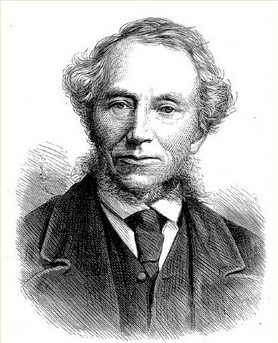Edward William Cox
Contents
Notes
Office Notes
House Notes
proposed 1873.02.18
Notes From Elsewhere
Edward William Cox (1809–1879) was an English lawyer and legal writer, who was also a successful publisher. He has been described as "the greatest entrepreneur of 'class' journalism ...
Cox spent freely on his joint interests on orchids and psychology. He had lectured on phrenology in 1834, and retained an interest in it.[7] The London Dialectical Society, founded in 1867, set up in 1869 a committee to investigate spiritualism, of which Cox was a member.[8] In 1871 he assisted William Crookes in his experiments into what Cox called "psychic force"[9] Cox was interested in the psychological side of mediumship.[10] Some have viewed him as a spiritualist rather than one interested in "secular" psychology;[11] but he is said to have rejected the "spirit hypothesis".[12] In 1875 he founded the Psychological Society for Great Britain, with George Harris;[13] it was quickly dissolved after his death. In 1876 he passed to the medium Daniel Dunglas Home details of trickery used by others in séances.[14]
Cox bought the fee simple (unfettered freehold) of the Serjeants' Inn in Chancery Lane at auction in 1877 for £57,100.[15][16] The Inn's hall was reconstructed at his new house at Mill Hill (then Middlesex, now London, NW7) with the original stained glass windows from the hall and chapel at the inn.[17]
His diversification proved profitable. When one of his heirs offered their reversionary interest in Cox's probate estate for sale the advertisement listed the sources of income. These included various leasehold properties in the City of London, Marlow Mills in Buckinghamshire, his newspaper and magazine titles as well as his landed property. Taken together, these had produced £54,000 a year for some years, although the bulk of the income came from Cox's magazines and newspapers.[18]
Publications
External Publications
1829, a Poem, 1829.
Reports of Cases in Criminal Law determined in all the Courts in England and Wales, 1846–78, 13 vols. (With Thomas William Saunders.[27])
Railway Liabilities, 1847.
Chancery Forms at Chambers, 1847.
The Law and Practice of Registration and Elections, 1847.
The New Statutes relating to the Administration of the Criminal Law, 1848.
The Powers and Duties of Special Constables, 1848.
The Magistrate, 1848.
The Practice of Poor Removals, 1849.
The Advocate, his Training, Practice, Rights, and Duties, 1852.
Conservative Principles and Conservative Policy, a Letter to the Electors of Tewkesbury, 1852.
Conservative Practice, a second letter, 1852. The Practical Statutes, 1853.
The Law and Practice of Joint-Stock Companies, 1855.
The Law and Practice of Bills of Sale, 1855. The Practice of Summary Convictions in Larceny, 1856.
A Letter to the Tewkesbury Electors, 1857. The Arts of Writing, Reading, and Speaking, in Letters to Law Students, 1863.
How to prevent Bribery at Elections, 1866. The Law relating to the Cattle Plague, 1866. Representative Reform, proposals for a Constitutional Reform Bill, 1866.
Reports of all the Cases decided by the Superior Courts of Law and Equity, relating to the Law of Joint-Stock Companies, 1867–71, 4 vols.
A Digest of all the Cases decided by the Courts relating to Magistrates' Parochial and Criminal Law, 1870. Spiritualism answered by Science, 1871. What am I? 1873. The Mechanism of Man, 1876. The Conservatism of the Future, 1877. The Principles of Punishment as applied to the Criminal Law by Judges and Magistrates, 1877. A Monograph of Sleep and Dreams, their Physiology and Psychology, 1878.[2]
House Publications
LAS on hybridism
